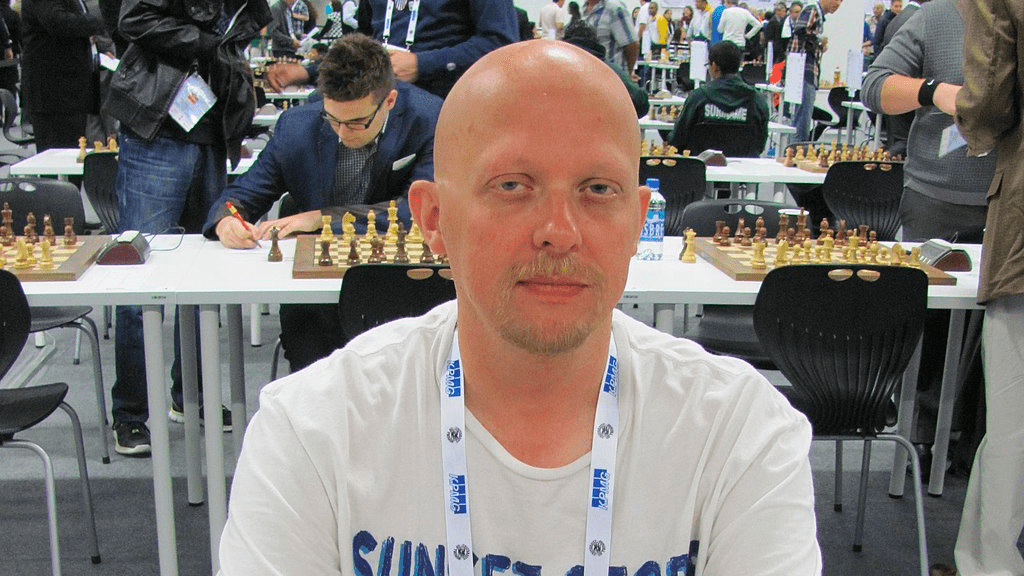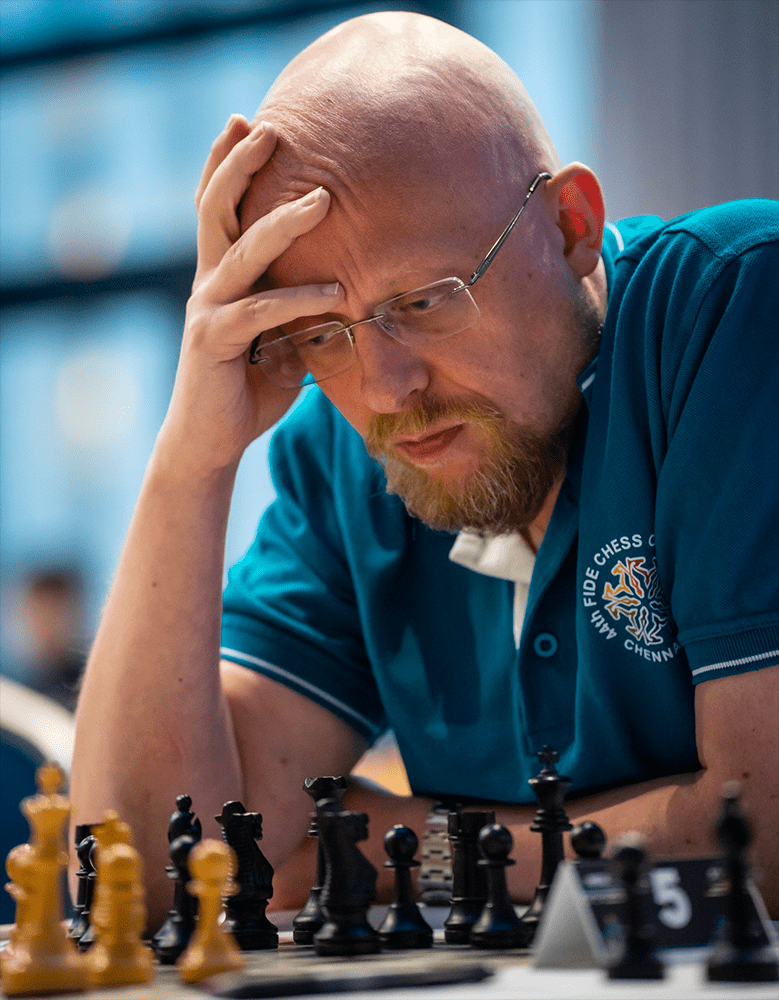
Belgian IM Expelled From Chess Tournament After Refusing Body Scan
IM Stefan Docx was expelled from the Benidorm Open in Spain, after refusing a metal detector body scan. The chief arbiter of the tournament is preparing a report for the FIDE Fair Play Commission.
Docx, a 48-year-old international master from Belgium and a three-time member of the Belgian Olympic squad, was playing in the Benidorm Chess Open "A" Supra 2000 tournament. It was a nine-round Swiss, held December 3-12, 2022 in Benidorm, a tourist coastal town about 100 km south of Valencia, Spain.
During the eighth round, Docx refused to be scanned with a metal detector. The chief arbiter, Ramon Garcia, warned him twice that he would be expelled from the tournament if he continued to refuse, a measure that follows FIDE regulations. When Docx still did not allow the check, he was disqualified and not paired for the ninth and final round.

Besides random body scans, the anti-cheating measures at the Benidorm Open included a review of games, the compulsory use of a coat check when entering the playing hall, and special attention from the arbiters for players who were spending a relatively long time away from the board. Docx did not have a coat checked, as he was never wearing one.
Arbiter Garcia is preparing a report for the FIDE Fair Play Commission, which suggests the player is suspected of cheating.
Garcia contacted Kenneth Regan, an associate professor at the State University of New York at Buffalo who has advised FIDE for several years. Regan uses a model to make statistical tests for using computers to cheat at chess. He also had a look at Docx' games years ago and found nothing.
Regan shared his conclusions about Docx' tournament in Benidorm with Chess.com, saying that he "would not have been caught from the statistics in the normal run of use over many tournaments."
Regan notes that Docx' intrinsic rating performance in Benidorm was 85 Elo below his rating, "both meaning that his play on the whole was below expectation for a 2450-rated player, and for rounds 1-4 he played over 300 Elo below expectation."
Regan couldn't find much about Docx' play in other tournaments either: "He has had no other individual tournaments covered by TWIC [This Week in Chess] or Chessbase since late 2019, and the record of opens since 2017 is unclear at most."
Nonetheless, rumors about Docx have been floating around the Dutch and Belgian chess scene for about a decade. As early as 2012, a Belgian club reported him for alleged cheating. One Dutch IM commented to Chess.com regarding the Benidorm incident: "Obviously everyone knew this for 10 years already."
The question is: are we are dealing with widespread paranoia or are there valid reasons to doubt Docx?

GM Artur Kogan, who runs a private Facebook group dedicated to the fight against cheating in chess, triumphantly posted about Docx's disqualification. The Ukrainian-born Israeli grandmaster, who lives in Spain, told Chess.com that he has suspected Docx for a long time but without ever finding evidence of cheating.
"He was like a normal 2200-2300 player, 10 years ago. And then, nine years ago, there were some suspicious cases. He suddenly defeated some strong grandmasters," Kogan said.
Docx, who had seen this article before publication as Chess.com asked for comment, only objected to Kogan's statement here. "I became an FM when I was 17, when my rating got over 2300, and I never went under," Docx pointed out in an email. "Also, I scored several more IM norm performances in recent years, including at this year's Olympiad in Chennai, which had strict anti-cheating measures."
It is also inaccurate to state that Docx started to beat strong grandmasters a decade ago. He has done that throughout his career, for instance GM Friso Nijboer in 1993, GM Evgenij Miroshnichenko in 2007, and GM Ivan Sokolov in 2011.
After looking at several games of Docx, including online games, Kogan nonetheless reported the Belgian player to both FIDE and the Association of Chess Professionals (ACP) some years ago. No action was taken.
"I found some system; there is no coincidence," claims Kogan. "But he was tricking Regan for many years; he was 'wise cheating.' I think he used an engine only sometimes."
Adding to the suspicion is the fact that Docx seems to have had his phone with him during games, not being shut off, multiple times during his career. The 59-year-old Belgian GM Luc Winants listed three games where Docx lost by default because his phone made sounds: Feygin-Docx, Belgian Team Championship 2007, Docx-Rezasade, German Oberliga 2015, and Docx-Carmeille, Belgian Team Championship, 2016.
Some members of the private Facebook group have drawn their conclusions, but none of the above is evidence that Docx had computer assistance during games. His refusal to comply with the body scan in Benidorm was enough to expel him, but neither the tournament arbiter nor the organizer have provided an official statement as to why they have suspicions of cheating. Their report for the FIDE Fair Play Commission might shed a light, although it's unclear whether it will be publicly available.
Arbiter Garcia is not sure whether FIDE will be looking into the case, because a disagreement between the Spanish Chess Federation and the Valencian regional federation prevents the Benidorm tournament from being valid for FIDE Elo calculations. The organizers are still trying to resolve matters and make their tournament FIDE-rated after all.
Yuri Garrett, chairperson of the FIDE Fair Play Commission, told Chess.com that they sometimes look at unrated tournaments as well. "There are other reasons why the commission may or may not take a case, based on the individual circumstances of the case at hand."


